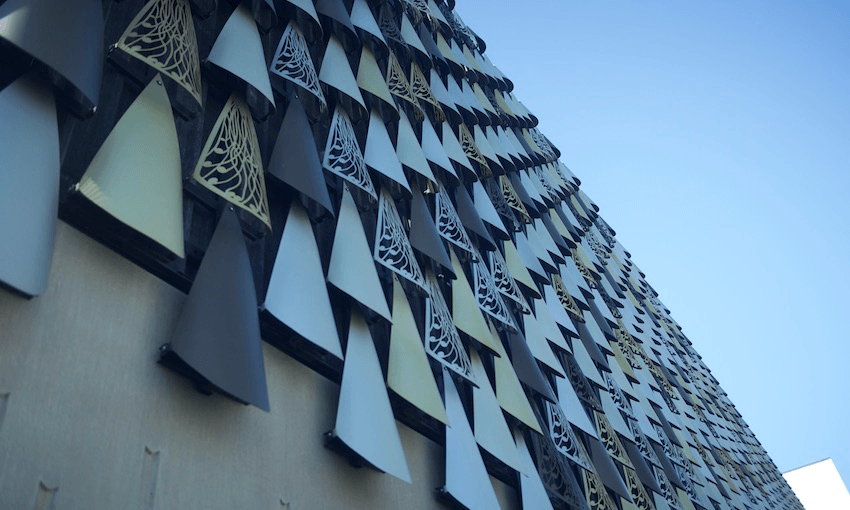In the first episode of The Good Citizen, a new podcast of interviews with exciting and innovative New Zealanders, Jeremy Hansen talks to Jade Kake about how the work of the Māori design movement can make life in Aotearoa better for all its citizens.
“The problem with subdivisions is that there are too many divisions.” Jade Kake is talking about an idyllic-sounding papakāinga housing development near Whangārei she’s designing, a place where kids will play together in shared outdoor spaces and neighbours will bond over get-togethers in the wharekai. But she could just as easily be talking about the divisive way our towns and cities have been designed, too. She notes how alienating our urban spaces can feel to Māori – many streets, for example, are named after Pākehā who often didn’t come to Aotearoa at all – and how the environments we build bear so little evidence of the presence of the people who first inhabited these islands.
The Good Citizen podcast: Download (right click to save), have a listen below, and subscribe to the series through iTunes (RSS feed).
The good news is that the inequality that is literally built into the places we work, live and socialise is finally beginning to be addressed. Kake is one of the strongest voices in a movement that knows Māori design principles can change Aotearoa for the better, not only in our housing, but in our towns and cities too. After an incredibly long struggle, their efforts to decolonise the design process are gaining traction in everything from housing developments like the one Kake is designing for her own hapū, to huge infrastructure projects like Tāmaki’s City Rail Link. It isn’t just New Zealanders who are taking note: Kake and her friends and colleagues at Ngā Aho, a network of Māori design professionals, are leading the world in applying indigenous design principles to contemporary projects, with their work being closely watched in Canada and the US.
Kake grew up in an eco-community in New South Wales but says her grandfather always ensured she had a strong connection to her family in Whangārei. She first studied architecture at the University of Queensland and completed her Master’s degree at Auckland’s Unitec after realising she felt Aotearoa was a place where she could contribute more. For the past few years she’s worked primarily as an advocate for Māori housing organisation Te Matapihi, but now she’s branching out, designing her own projects and helping whānau and hapū groups through the thicket of legal and logistical challenges that can stand between them and the development of their land.
She’s also the host of the podcast Indigenous Urbanism, in which she roves New Zealand to talk to urban designers, iwi and more about the challenges and breakthroughs they experience as they work to put the values of mana whenua at the centre of the design process. The podcast contains a couple of implicit questions: What would the towns and cities of Aotearoa look like if Māori design principles hadn’t been ignored for so long? And what has made the rest of the country finally start to listen?
In The Good Citizen podcast, Kake tells Hansen about bringing Māori design principles in from the margins, how papakāinga projects can provide a partial solution to the housing crisis, and how decolonising design can be good for everyone.
The Good Citizen is produced in association with Britomart, the nine-block precinct at the heart of downtown waterfront Auckland where good ideas — and good citizens — are always welcome.

